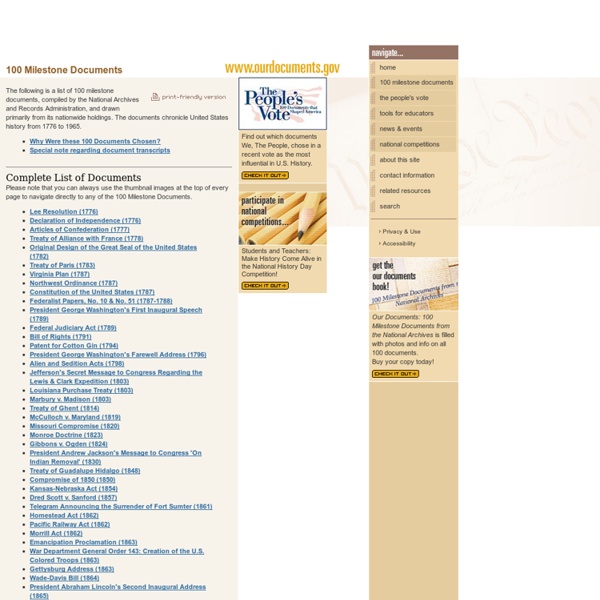



Finding Aid on the Cold War Compiled by Tim Wehrkamp Contents Preface Introduction Records in Presidential Libraries Comprehensive Subject Matter Records Newsreels and Television Broadcasts Record Group 306 (Records of the United States Information Agency) Still Pictures and Motion Pictures Textual Records Electronic Records Record Group 273 (Records of the National Security Council) Textual Records Records of the Military Textual Records Electronic Records Donated Material Still Pictures Motion Pictures Intelligence Records Textual Records Reconnaissance and Satellite Imagery Foreign Policy Records Textual Records Still Pictures Records of Congress Textual Records Appendix I: List of Record Groups (RG) Cited in Reference Information Paper 107 Appendix II: Sources of Additional Information About Records or Finding Aids Described in Reference Information Paper 107 End Notes Preface NARA's descriptive program comprises a variety of information products. John W. Introduction Records in Presidential Libraries
Geography & Culture DocsTeach Help your students think through primary source documents for contextual understanding and to glean information to make informed judgments. The first few times you ask students to work with primary sources, and whenever you have not worked with primary sources recently, be sure to model careful document analysis. Direct students’ attention to the procedures involved and the kinds of questions you ask about the documents. Remind students to practice this same careful document analysis for every primary source they see. Learn more about introducing your students to primary source documents. For any type of document — a written document, image, map, chart, graph, audio or video — move through the following steps: Before getting into the content of the document, look at it in a very general sense and ask basic questions. Why teach with documents? When we ask students to work with and learn from primary sources, we transform them into historians. Teaching with documents can engage students.
Shared AP Government Comparative Shared Content Subject Courses American GovernmentPsychologyWorld Geography AP European History (Revised 2015) AP Government Comparative AP Human Geography AP US History AP World History (Revised 2015) Sociology (Revised 2015) US History World History (Revised 2015) OER Terms of Use OER Content Terms of Use Click Here AP Government & Politics Comparative 100 Scientists On Twitter By Category While scientists may have a reputation for being anti-social, when it comes to using social media you’ll find the best and brightest in diverse scientific fields taking full advantage of the chance to connect with laymen and other scientists alike. Twitter is full of opportunities to hear what these scientists have to say, follow their work, and even start a conversation. Here, we’ve collected 100 amazing scientists that use Twitter (listed by category, not ranking) that provide perfect reading material for anyone hoping to learn more about a field or just keep up with the latest in research and writing on some seriously interesting topics. Extraplanetary Sciences From astronomy to rocket science, these scientists are dedicating their careers to exploring what lies beyond our own planet. @SethShostak: Astronomer Seth Shostak offers up insights into the cosmos through great links to space news in this feed. Biology Chemistry Earth Sciences Environmental Science Physics Health and Medicine
Anti-Saloon League Museum | Westerville Public Library What was the Anti-Saloon League? From 1893 to 1933, the Anti-Saloon League was a major force in American politics. Influencing the United States through lobbying and the printed word, it turned a moral crusade against the manufacture, sale and consumption of alcohol into the Prohibition Amendment to the United States Constitution. Under the motto "The Saloon Must Go," the organization worked to unify public anti-alcohol sentiment, enforce existing temperance laws and enact further anti-alcohol legislation. At first, the League appealed to local churches to carry its message to the people. The League was able to promote the temperance cause by publishing thousands of fliers, pamphlets, songs, stories, cartoons, dramas, magazines and newspapers. How can I find more information? This website was created based on a large collection of Anti-Saloon League documents and artifacts, bequeathed to the Westerville Public Library.
Civics Digital History We are very sorry, but you have reached a page that has moved or no longer exists. Please visit our home page to experience our new look and updated navigation. On August 8, 2012, Digital History switched to a new interface. We have been restructuring the database and the organization of Digital History for the past three years, and we feel this makeover will significantly improve the usability of our materials. Although the links to our textbook, primary sources, and other educational materials changed in the new interface, we believe the benefits significantly outweigh any inconvenience. Please email Sara McNeil at smcneil@uh.edu if you have any questions about Digital History.